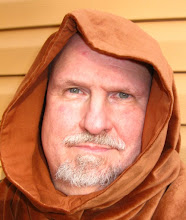Part Three of artist Robert Crumb's impressions of various famous people:
TIMOTHY LEARY: “I finally got to meet him in person at a party somewhere in San Francisco just a couple years before he died. It was a friendly exchange, but at that point he was being guided around by this guy who was taking care of him. He was pretty far gone. He was really out there in the twilight zone; too much LSD, probably."
ADOLF HITLER: "I read an interesting book about Hitler, things that I hadn’t read in any other book, where soldiers who had been in the army with him in the First World War were interviewed. They said Hitler was the guy who never went on leave. In the entire four years, he really had no place to go home to. He just stayed on the front. And he was the guy who would always go out and drag the wounded soldiers off the battlefield. He would never shirk from any duties. He was the most fanatic soldier. That helped to understand how Hitler, who had seen so much death in those four years, that it became acceptable to him. To kill people, to face the possible violence of opposing forces was nothing to him. So he built up his Nazis into a brutal organization. They would just violently break up Communist meetings, punch people out, smash the place up. That was nothing to them, because they had previously seen so much violence and death in that war. And then they lost the war, and then there was the treaty of Versailles which stuck the knife in even deeper. Some historian wrote that ‘Hitler had the Treaty of Versailles stamped on the seat of his pants.’ The French wanted to punish Germany severely. Georges Clemenceau insisted on these harsh measures against the Germans, the heavy reparations, the ceding of territory, etc. He was as much responsible for the rise of the Nazis as Hitler or the American and British elite of finance.
WILLIAM BURROUGHS: "I love Burroughs also; a great writer. But his best writing is his straight-ahead prose. He wrote all this crazy fantasy stuff, which I think he was encouraged to do by this other beatnik writer, Brian Gyson, who, for some reason Burroughs admired. Gyson was, I think, a jive-ass, bullshit kind of guy. Burroughs, I think he lacked confidence in his own writing, because when he wrote straight prose it didn’t sell well. When he wrote Junkie, and that came out, it didn’t sell well in the beginning. And then he wrote this other book, Queer, around the same time in the early ’50s and he couldn’t even get that published. That wasn’t published until the 1980s. And Queer is a great book. Both Junkie and Queer are great. They’re both written in this very dry, prose style. And his little thin book called the Yage Letters, which were letters he wrote back to Allen Ginsburg while he was in South America looking for this psychedelic Yage plant. That’s a great book; great stuff. But the problem is, there’s not enough of that, not enough of his straight-ahead prose. He just didn’t think it was any good because he either couldn’t get it published or it didn’t sell. So then he wrote this gimmicky thing called Naked Lunch, which is mostly fantasy stuff and not very interesting to me, and that sold well. He made his reputation on Naked Lunch.
SERENA WILLIAMS: "Now you’re talking. I think a lot about Serena. I do. I collect photos of Serena. She’s just a total, super-Amazon. What more can you say? Of course, she’s also a Jehovah’s Witness. Yeah, people have said to me, ‘Hey, I can arrange for you to meet Serena.’ But I have nothing to say to her. I’m not interested in tennis, and I can’t really abide that Jehovah’s Witness nonsense. You know, there’d be no grounds for anything to talk about. So I just have to admire her from a distance. But God, what a butt, as you well know."
Click the link to read the rest. You can also click the label Crumb at the bottom of the post to read the earlier links.
Wednesday, March 21, 2012
Subscribe to:
Post Comments (Atom)







No comments:
Post a Comment